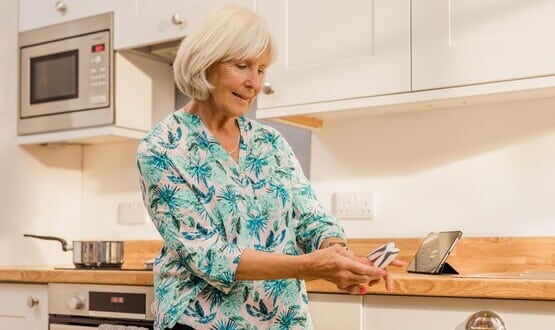All wirelessed up
- 6 May 2010
Best use of wireless healthcare

Winner:
Southampton University Hospitals NHS Trust

"At Southampton University Hospitals NHS Trust, we’ve tried to ensure that we’ve not just put in a wireless network for its own sake, but to make sure it has benefits for clinical staff and patients.”
This is how Ryan Hewitt, senior network and security analyst at the trust, describes a project to connect Southampton’s main hospital and several smaller sites using wireless technologies, and to give its consultants and other senior staff secure, remote access to its IT systems.
Installing wireless access points in the main hospital may have been an IT-led project, but extending access to consultants at home has very much been driven by user demand.
“We did a small deployment, using wireless to deliver PACS to operating theatres. Theatres are sealed units where you don’t want to put cabling in, but if surgeons don’t have access to X-rays that does have a detrimental effect [on patient care],” says Hewitt.
Initial, positive feedback from the PACS deployment helped to build the business case for a campus-wide wireless LAN and a project to deploy Vocera wireless voice dongles.
“As the wireless network is fairly prevalent [now], awareness has increased among staff,” Hewitt says. “We now have members of staff approaching us saying that a wireless device is available, and asking if they can make use of it. Wireless glucose monitors, for example, are saving a lot of time.”
Extending the network to consultants at home was driven by a desire to improve clinical outcomes. “Neurological consultants were the organisational guinea pigs,” Hewitt explains.
“We used them because they were asking for remote access. They have an on-call rota, with the on call consultant picking up out of hours calls.
“If a patient had a head trauma, the consultant would have to drive to the trust. So a lot of time was spent travelling-in. When time is critical, that is time you cannot afford to lose in that way.”
Consultants now use a trust provided device – Aruba’s Remote Access Point – to connect to the corporate network. The access point handles most security issues, so the process is both transparent and fast as far as the consultants are concerned.
“They might still decide to come-in, but the bottom line is they have access to all the images and clinical information they need to make that decision without having to drive-in,” Hewitt explains.
In most cases, consultants have been able to install the Aruba equipment by simply connecting a network cable to their home router.
“We provision the [remote] APs so they are the same ones as are used across the campus,” says Hewitt. “There are a few differences in the level of security we use; it is an IPSec VPN and we use encryption for the wireless access.
“All trust laptops encrypt everything, and the connection between the laptop and the wireless infrastructure is encrypted.”
Recently, the trust turned to the same technology in order to equip remote sites for direct access to the main network. This includes a warehouse and a number of clinical sites.
“We have a remote office with five or six people working there,” Hewitt says. “To have them connected back to us and to give them the full office experience would have demanded working with BT or another carrier, and putting in a leased line.
“For that few people that’s a false economy. Instead, we’ve put in business DSL line and a remote access point. This is costing us £30 a month.”
The trust has had to take some steps to manage the impact of the access points on the wireless network. General Internet browsing for remote workers, for example, is handed off by the Access Point to the user’s router and so to their ISP, rather than to the trust network.
Sometimes trust IT staff have to modify the router’s firewall settings. Those cases are rare, however, and feedback from remote users has been positive.
The trust is now looking at other ways to use its wireless network, including through services such as real time location tracking (RTLS).
Some health care organisations have shied away from technologies such as RTLS, because of the potential load it puts on networks.
The trust is also looking at fixed-mobile convergence for voice, and it has already undertaken some trials with the Vocera equipment with remote users. As much as 50% of trust telephone traffic is back to the main campus, so the cost savings promise to be significant.
For Hewitt, the fact that the SUHT wireless infrastructure was built with voice in mind, also provides a level of robustness that allows for new functionality.
“We designed our wi-fi to be able to deliver voice. If you can do voice, that is a good basis for everything else. If you can do voice, you can certainly deliver data,” he says.
The E-Health Insider Awards 2010 in association with BT seek out and reward outstanding work within the UK healthcare IT sector. Entries are open now on the dedicated awards website.
The deadline for entries is 4 June.
The awards will be presented on Wednesday, 6 October in the Grand Hall at the Grand Connaught Rooms, Covent Garden, London. For more information or to reserve a table, please visit the awards website.




